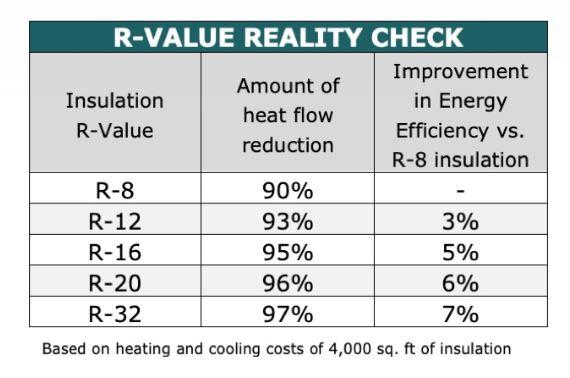When it comes to enhancing the comfort and energy efficiency of your home, insulating your garage can often be overlooked. However, for those who use their garage as more than just a place to park their cars, proper insulation is essential. One critical factor to consider in this regard is the R-value of your insulated garage door. In this article, we’ll explore what the R-value means, why it matters, and how to choose the right insulated garage door for your needs.

Understanding the R-Value
What is the R-Value?
The R-value, short for “resistance value,” is a measure of how effective a material is at insulating against heat flow. In simpler terms, it quantifies how well a material, such as the insulation in a garage door, resists the transfer of heat from one side to the other. The higher the R-value, the better the insulation’s performance.
Why the R-Value Matters for Garage Doors
Energy Efficiency:
The R-value of your garage door is directly related to its energy efficiency. A higher R-value indicates that the door provides better insulation, reducing the transfer of heat between the inside and outside of the garage. This can help maintain a more stable and comfortable temperature inside the garage.
Comfort:
If you use your garage as a workspace, gym, or even an additional living area, having proper insulation can significantly improve the comfort level. It keeps the temperature more consistent, making it more pleasant to spend time in the garage, especially during extreme weather conditions.
Cost Savings:
Insulated garage doors can lead to cost savings on heating and cooling. By maintaining a more stable indoor temperature, your HVAC system doesn’t need to work as hard to regulate the temperature, resulting in lower energy bills.
How to Determine the Right R-Value
Climate Considerations:
The ideal R-value for your insulated garage door depends on your climate. If you live in a region with extreme temperatures, such as hot summers and cold winters, a higher R-value is recommended. In milder climates, a lower R-value may suffice.
Intended Use:
Consider how you use your garage. If it’s purely for parking your car, a lower R-value might be acceptable. However, if you use it as a living space or workspace, a higher R-value is crucial.
Material and Construction:
The material and construction of the garage door play a significant role in its R-value. Doors with multiple layers of insulation, such as a steel front and back with a layer of foam insulation in between, tend to have higher R-values.
Benefits of a Well-Insulated Garage Door
- Energy Savings: A well-insulated garage door can reduce energy consumption and lower heating and cooling costs.
- Temperature Control: It helps maintain a more consistent and comfortable temperature inside the garage, making it suitable for various uses.
- Noise Reduction: Insulation can also dampen noise from the outside, making your garage quieter.
- Protection: Insulated doors provide better protection for your belongings stored in the garage, including vehicles and tools.
Conclusion
Understanding the R-value of an insulated garage door is essential for making an informed decision when upgrading your garage. A higher R-value provides better insulation, resulting in improved energy efficiency, comfort, and potential cost savings. Consider your climate, the intended use of your garage, and the door’s material and construction when selecting the right R-value for your garage door. With the right choice, you can enhance the functionality and comfort of your garage while potentially lowering your energy bills.



Leave a Reply